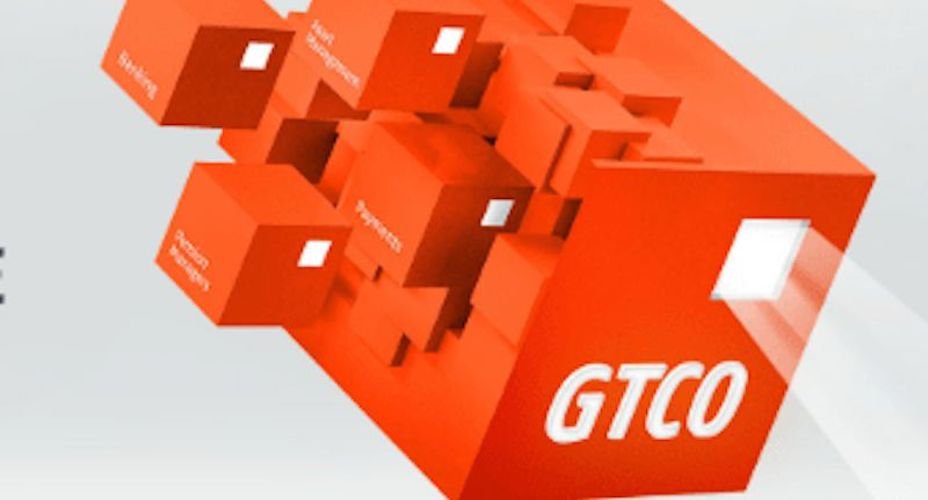
Three major Nigerian banks GTCO, Access Holdings, and Fidelity Bank—are set to allocate a total of N186 billion ($244 million) from their recent public offerings to bolster their IT infrastructure.
This move is part of their strategy to comply with the Central Bank of Nigeria’s (CBN) new recapitalisation requirements.
The banks’ prospectuses reveal plans to strengthen their cybersecurity frameworks and acquire new software licenses, driven by a surge in electronic transactions and increasing instances of online fraud in Nigeria.
GTCO Plc is leading the pack, earmarking 26.6% of its expected N400.5 billion ($526 million) in public offer proceeds—amounting to N98.5 billion ($129 million)—for technology upgrades.
Access Holdings plans to invest N68.6 billion ($90 million), or 20% of its anticipated N343 billion ($451 million) proceeds, in IT infrastructure.
Fidelity Bank is dedicating 20% of its N95 billion ($125 million) in proceeds, approximately N19 billion ($25 million), to similar initiatives, with a focus on enhanced cybersecurity solutions, data analytics, and cloud services.
GTCO’s detailed plans include spending N70 billion ($92 million) on its core banking application, N15 billion ($20 million) on information security and fraud prevention software.
It will allocate another N6 billion ($8 million) on upgrading digital channels such as mobile and internet banking, and N7.5 billion ($10 million) on enterprise management solutions.
These upgrades are slated for completion within 12 to 24 months.
Access Holdings intends to invest N41.1 billion ($54 million), representing 12% of its offer proceeds, in network infrastructure, and N27.4 billion ($36 million) in cybersecurity over 36 months.
Fidelity Bank’s allocation includes N9 billion ($12 million) for cybersecurity, N7.6 billion ($10 million) for software licenses and hardware, and N2.3 billion ($3 million) for network infrastructure, with a projected completion timeline of 48 months.
Analysts highlight the urgency for Nigerian banks to enhance their IT infrastructure and cybersecurity. The significant impacts of a single security breach on the financial system underscore this necessity. Additionally, the shift towards electronic banking, particularly during periods of cash scarcity, has exposed the inadequacies in current IT systems.
“There is a clear need for an overhaul of IT infrastructure in many banks, driven by customer experiences and the increasing reliance on digital banking,” said Mr. Bello Muritala, founder of SalesUltimo, a SaaS technology company. “Investing a substantial portion of recapitalization funds in technology is a positive step, enhancing the digital banking experience for Nigerians.”
Muritala added that robust cybersecurity measures would help Nigerian banks mitigate fraud risks, boosting customer trust and investor confidence.
According to the Chief Executive Officer of Clane, a mobile payment company, Mr. Dipo Alabede, investing in technology and cybersecurity infrastructure is crucial for the banks as it would enable them to automate and streamline processes, reducing manual errors and improving service delivery.
“With the rise in the development and adoption of digital platforms we should also expect a rise in cyber threats, including phishing attacks, ransomware, and data breaches, thus investing in cybersecurity is imperative for the banks.
.The banks have in recent times faced competition from fintechs, whose infrastructure is agile and are able to scale faster than the traditional banks. The likes of Opay, Palmpay, Moniepoint, among others are now controlling millions of customers that would automatically have been bank customers in the absence of the fintechs.
This is firing up the banks to invest more in technology. However, some industry analysts believe that with the exception of GTCO, which is spending 26.6% of its proceeds on technology, the 20% earmarked by the banks may not be enough for the IT infrastructure overhaul that the banks need considering the changing dynamics of the financial technology space, especially with the increasing deployment of Artificial Intelligence (AI) across sectors.
Meanwhile, all the banks have been projected to raise an estimated N4.2 trillion at the end of the ongoing recapitalization exercise. Going by the planned investment in IT infrastructure from the offer proceeds by the three banks, which is an average of 20%, about N840 billion of all the banks’ capital raise may end up in the IT sector.






